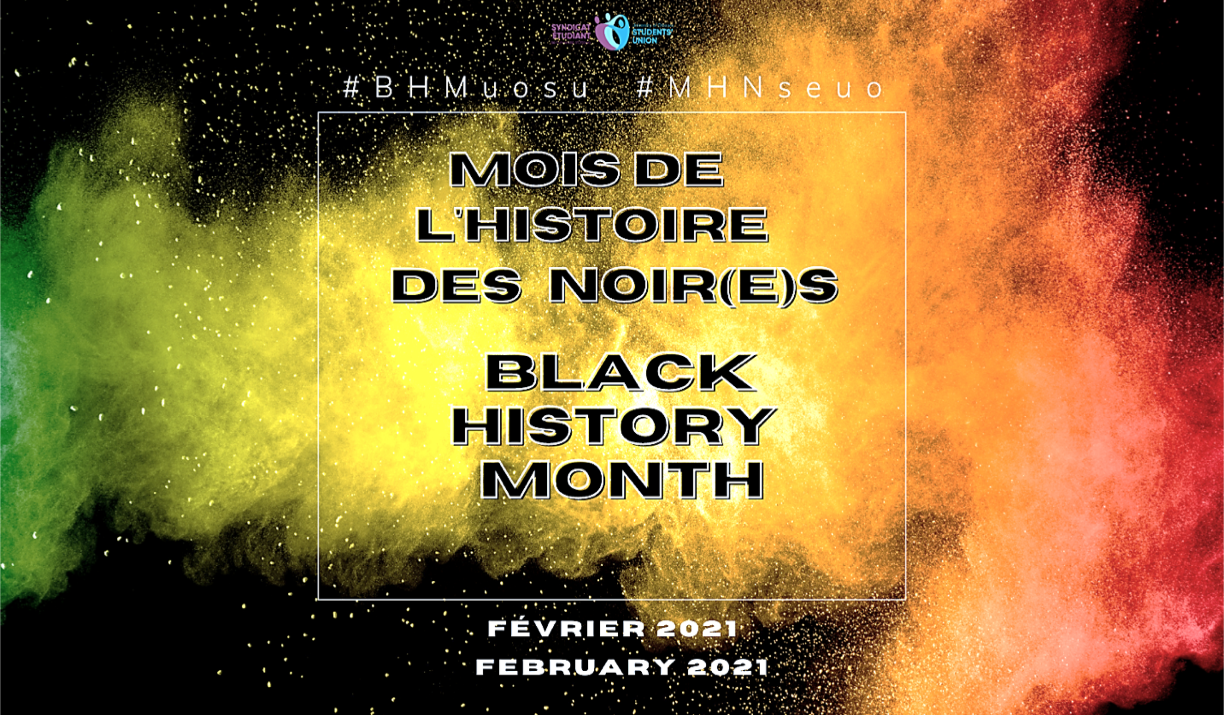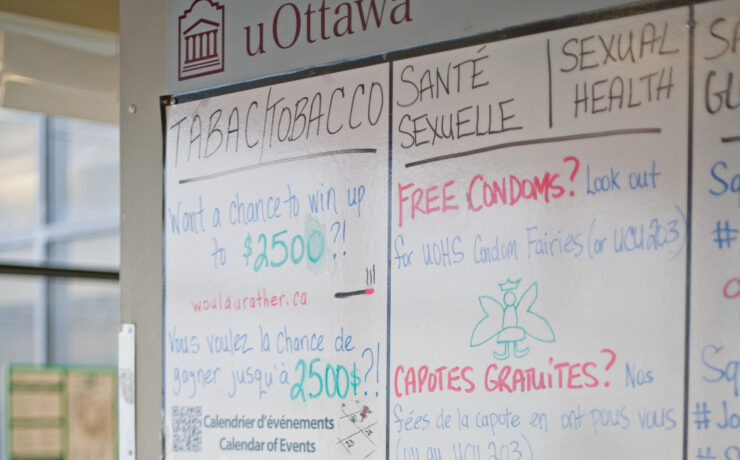Digital event gave space for Black expression and recognition within the U of O community
On Feb. 27, the University of Ottawa Students’ Union (UOSU) hosted its annual Black History Month Gala — but this year’s COVID-induced mobility restrictions required an extra touch of creativity from the Black creatives of the University of Ottawa community.
This year, in celebration of Black talent, activism, entrepreneurship, and overall community, the gala’s online format invited students to submit their showcases through audio-visual clips.
U of O graduate and co-founder of the Black Law Students Association’s (BLSA) civil law chapter, Ruth Bansoba, offered the event’s introductory speech. She highlighted the figures in the Black collective history whose perseverance helped create a Black experience that went “beyond the statistics.” She also praised the individuals and collectives who sought to open doors of opportunities for “builders of the future, change-makers, [and] Black excellence representatives.”
The show was not spared from technical difficulties, with a number of glitched videos, but the gala’s presenters, Racialized and Indigenous Students Experience Centre (R.I.S.E.) coordinator, Blessing Tansia, and UOSU equity commissioner Jason Seguya, showed no signs of distress in their address to the public.
They smoothly segwayed into the award portion of the evening, where students were invited to nominate their fellow peers in recognition of “the contributions and accomplishments of members of the [U of O] Black community”. Award winners were each granted a trophy and $500 worth of scholarship funding.
The list of award winners included:
The Equity Advocate Award awarded to an individual or group who embodied a dedication to equity through preaching and practice. This year’s recipient was Lolade Shipeolu.
The University Career Achievements Award recognized an individual whose actions enabled the UOSU to flourish. It was awarded to Yosherbede Desruisseaux.
The Creative Activism Award, which recognizes a student and Black creative who masterfully used their creative outlet to either help defend human rights, protect the environment, defend economic and global justice or partake in cultural resistance. The winner was Abigail Darrelle Mekodjou Keumoe.
The Woman of Inspiration Award, presented by the Womxn’s Resources Centre, is a token of appreciation for an “extraordinary woman who leads by example, lives [with] purpose and inspires others to be more and do more” (UOSU). The award was won by Yanaminah Thullah and Yasmine Elmi
The 2SLGBTQ+ Community Leader Award, presented by the Pride Centre, is given to a self-identifying Black 2SLGBTQ+ member of the U of O community who used intersectionality and inclusion to foster a safe space for their peers. Zachary Davis won the award.
The Prix de la Francophonie, another highlight of intersectionality, celebrates the multifaceted Black individual whose “social, political or cultural contributions” helped elevate the Francophone and Black community at the university. Yasmine Elmi was this year’s recipient.
Two $1000 scholarships for Black Francophone students were awarded to Julia Kemzang Emogang and Patricia Burhunduli. These two scholarships invited students to submit a short paper about their experience being a Black francophone on campus. The added feature to this engaging assignment also encouraged participants to provide advice or recommendations on how the Bilingualism Centre and UOSU as a whole could facilitate the creation of “safe[r] space[s] for B[l]ack students” at the U of O. With each award, acceptance speeches were kept short and sweet and full of gratitude. Between the rounds of congratulatory chat messages, performers reminded us of the virtuosity of U of O’s Black talent.
Artist Real MJ displayed a snippet of his discography, beginning with the catchy tune “Snap”, a signature French rap melody over a subject matter ranging from brotherly camaraderie to social media ‘situationships’. Later, his tone turned serious on the more insightful track “African”, whose poignant chorus “on se sent persécuté” (we feel persecuted) recalls the legacy of colonialism, exploitation, and expropriation that punctured the everyday lives of people of African descent.
Young poet Ezi also gave audience members a taste of soulful spoken word with a performance of her piece “Mine.” Her calm tone and cadence portrayed a candid portrait of self-love, growth and aspirations waiting to be fulfilled. Mid-verse, her light chant tied the rejoiceful spirit all together in an appreciation for a metaphorical “Black coffee in the night,” oozing warmth and delight. She reminded us that beauty belongs to the beholder, saying, “I do not wish to write about your Black people, I want to write about us.”
uRacism also made an appearance at this event. Their collective movement is one of many Black-led advocacy groups claiming agency in the pursuit of social justice, and they are encouraging all members of the U of O community to do the same. In a skit performance, they played out a fictional scenario where a student’s feeling of insecurity in an academic space commissions a whole community to mobilize in her defense. Despite this ideal sequence of events, the group reminded viewers that reality reflects a more smoke and mirror version of such a scenario — many systemic barriers that prevent Black students at the university from feeling safe still exist.
“Racism doesn’t just happen in February, it’s an ongoing systemic issue,” said former Black Student Leaders Association (BSLA) representative and uRacism member, Dilaye Desta.
Black History Month is, as the Gala’s co-presenter Jason Seguya puts it, “[a] moment of celebration but also a moment of remembering.” Lest we forget that this moment of remembrance extends past the 28-day expiry date, and that despite these joyful communal celebrations, the struggle for equity continues, both on and off the U of O campus.




